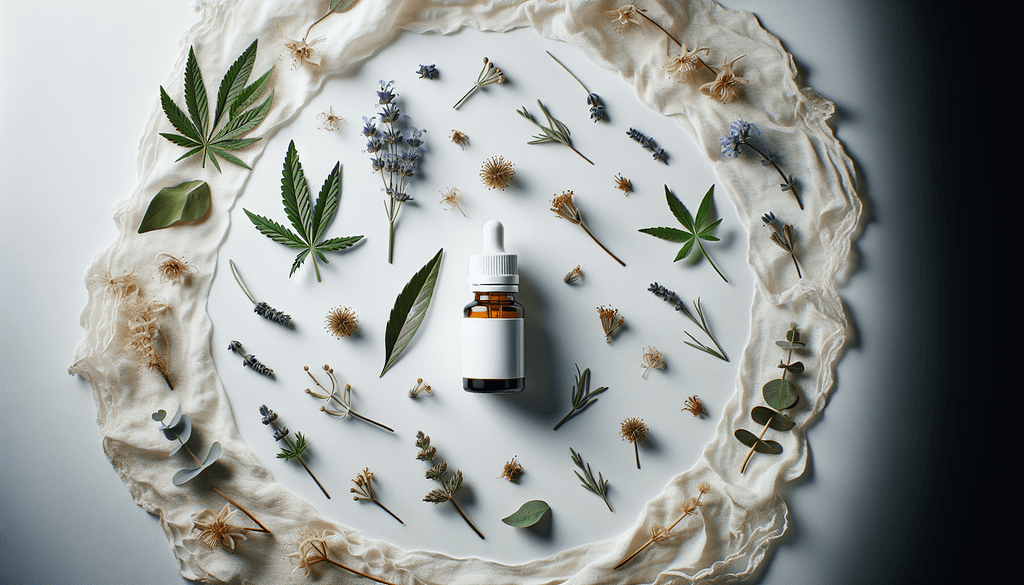As an Amazon Associate I earn from qualifying purchases.
Unlock the potential of CBD oil for managing ADHD in children with our comprehensive guide. Learn about benefits, dosage, safety, and more for informed parenting choices.
CBD Oil for ADHD in Children: A Comprehensive Guide
Introduction
Attention Deficit Hyperactivity Disorder (ADHD) is a common neurodevelopmental disorder that affects many children worldwide. It manifests through symptoms such as inattentiveness, hyperactivity, and impulsiveness, which can make daily life challenging for those affected. As parents seek alternative and complementary therapies to support their children, one option that has garnered significant attention is CBD oil. This comprehensive guide aims to provide you with detailed information about CBD oil for ADHD in children, so you can make informed decisions about your child’s health and well-being.
Understanding ADHD
What is ADHD?
ADHD stands for Attention Deficit Hyperactivity Disorder. It is a condition that affects the brain’s ability to regulate attention, impulse control, and activity levels. Children with ADHD often struggle with staying focused, sitting still, and controlling their impulses. These difficulties can affect their academic performance, relationships, and overall quality of life.
Symptoms of ADHD in Children
The symptoms of ADHD are categorized into two main types: inattentive and hyperactive-impulsive. Some children may exhibit symptoms from both categories. Here is a brief overview of each:
Inattentive Symptoms:
- Difficulty sustaining attention in tasks or play activities
- Frequently makes careless mistakes in schoolwork or other activities
- Often forgetful in daily activities
- Struggles to follow through on instructions and finish tasks
Hyperactive-Impulsive Symptoms:
- Fidgets with hands or feet and squirms in seat
- Runs or climbs in inappropriate situations
- Talks excessively and interrupts others
- Has difficulty waiting for their turn
Diagnosis and Traditional Treatment Options
Diagnosing ADHD involves a comprehensive evaluation that includes interviews, questionnaires, and observation. Healthcare professionals may also use specific diagnostic criteria from the DSM-5 (Diagnostic and Statistical Manual of Mental Disorders). Traditional treatments typically include behavioral interventions, counseling, educational support, and medications such as stimulants and non-stimulants.

Introduction to CBD Oil
What is CBD Oil?
CBD, or cannabidiol, is one of the many chemical compounds found in the cannabis plant. Unlike THC (tetrahydrocannabinol), which is known for its psychoactive effects, CBD does not cause a “high.” CBD oil is extracted from the hemp plant and is often mixed with a carrier oil such as coconut or hemp seed oil.
How CBD Oil Works
CBD interacts with the body’s endocannabinoid system (ECS), which plays a crucial role in regulating various physiological processes such as mood, appetite, pain sensation, and immune response. The ECS comprises receptors (CB1 and CB2), enzymes, and endocannabinoids. CBD interacts with these receptors, potentially promoting balance and homeostasis in the body.
Legal Status of CBD Oil
The legal status of CBD oil varies by country and region. In some areas, CBD oil derived from hemp with less than 0.3% THC is legal, while in others, it may be subject to restrictions or entirely prohibited. It is essential to research and understand the legal framework in your area before considering CBD oil for your child.
How CBD Oil May Help with ADHD
Potential Benefits of CBD Oil for ADHD Symptoms
Research on CBD oil’s effects on ADHD is still in its early stages, but some studies and anecdotal evidence suggest that it may offer several potential benefits:
Improved Focus and Attention: CBD may help enhance concentration and attention span, which are often challenges for children with ADHD.
Reduced Hyperactivity: Some parents report that CBD oil helps to calm their children, reducing hyperactive behaviors.
Better Impulse Control: CBD may support better impulse control, helping children think before acting.
Mood Regulation: Since CBD interacts with the ECS, it may help regulate mood and reduce anxiety, which can be comorbid with ADHD.
Scientific Studies and Evidence
Several studies have investigated the effects of CBD on child and adolescent psychiatric disorders, including ADHD. For instance, a study published in the Journal of Clinical Psychology found that CBD might help reduce anxiety and improve sleep, which are often affected in individuals with ADHD. However, it is crucial to note that more clinical trials and long-term studies are needed to fully understand CBD’s efficacy and safety in treating ADHD in children.

Safety and Side Effects
Is CBD Oil Safe for Children?
The safety of CBD oil for children is a topic of ongoing research. While some studies suggest that CBD is generally well-tolerated, it is essential to approach this treatment cautiously. Consulting with a healthcare professional is paramount before starting your child on CBD oil, particularly to rule out potential drug interactions and assess individual health needs.
Possible Side Effects
CBD oil may cause side effects in some children, although they are typically mild and well-tolerated. These can include:
- Fatigue or drowsiness
- Changes in appetite
- Diarrhea
- Dry mouth
Monitoring your child closely and keeping open communication with your healthcare provider can help manage and mitigate any side effects that may arise.
Interactions with Other Medications
CBD can interact with certain medications, including those commonly prescribed for ADHD. These interactions can affect how medications are metabolized, potentially altering their effectiveness or increasing the risk of side effects. It’s imperative to discuss CBD oil use with your child’s doctor, especially if they are taking other medications.
How to Choose Quality CBD Oil
Factors to Consider
When choosing CBD oil for your child, it’s essential to consider several factors to ensure you are selecting a high-quality and safe product:
- Purity: Look for CBD oil that is free from contaminants such as heavy metals, pesticides, and solvents.
- Potency: Check the concentration of CBD in the product to ensure it meets your child’s needs.
- Source: Opt for CBD oil derived from organically grown hemp to minimize exposure to harmful chemicals.
- Third-Party Testing: Quality CBD products should be tested by independent laboratories, with results available for consumers to review.
Reading Labels and Certificates of Analysis (COAs)
When purchasing CBD oil, carefully read product labels and verify information with the corresponding COAs. The COA should confirm the product’s CBD content and ensure it is free from contaminants. Trustworthy brands typically make this information accessible on their websites.
Dosage and Administration
Determining the Right Dosage
Finding the right dosage of CBD oil for your child requires careful consideration and often some trial and error. Start with a low dose and gradually increase it while monitoring your child’s response. Dosage recommendations can vary based on weight, age, and individual health conditions. Consulting with a healthcare professional experienced in CBD therapy can provide valuable guidance.
Methods of Administration
There are various ways to administer CBD oil to children:
Oral Drops: Placing drops under the tongue allows for quick absorption into the bloodstream.
Capsules: An alternative for children who struggle with the taste of CBD oil.
Edibles: CBD-infused snacks or gummies can be a more palatable option for younger children, though it’s important to monitor dosages carefully.
Topical Applications: While less common for ADHD, CBD creams or balms can be applied to the skin if direct use is preferred for other reasons.
Monitoring and Adjusting Dosage
Careful monitoring of your child’s symptoms and any side effects is essential. Keeping a journal can help track changes and determine if dosage adjustments are necessary. Regular follow-ups with your healthcare provider will also ensure your child is receiving the optimal benefit from CBD oil.
Practical Considerations for Parents
Communicating with Healthcare Providers
Before starting CBD oil, have an open and honest conversation with your child’s healthcare provider. Discussing your interest in CBD and seeking their professional opinion will ensure your child’s safety and well-being. They can provide insights into potential benefits, risks, and interactions with other treatments.
Addressing Concerns and Misconceptions
There is a degree of stigma and skepticism surrounding CBD oil, primarily due to its association with cannabis. Educating yourself and others about the differences between CBD and THC, and emphasizing the non-psychoactive nature of CBD, can help dispel misconceptions.
Managing Expectations
Understanding that CBD oil is not a cure but a potential complement to other treatments is essential. Managing expectations and being patient while observing your child’s response will contribute to a more informed and effective care strategy.
Real-Life Experiences and Testimonials
Positive Outcomes
Many parents have shared positive experiences with CBD oil for their children with ADHD. Improved focus, reduced anxiety, and better overall mood are commonly reported benefits. These anecdotal testimonials, while encouraging, should be considered alongside scientific research.
Challenges and Considerations
Some parents encounter challenges such as finding the right dosage or brand, dealing with side effects, or facing skepticism from others. Navigating these obstacles requires patience, perseverance, and continual learning.
Conclusion
CBD oil offers a promising potential for managing ADHD symptoms in children, but it is essential to approach this therapy with caution and thorough research. Consulting with healthcare professionals, carefully selecting high-quality products, and monitoring your child’s response are crucial steps to maximizing benefits and minimizing risks.
Remember, every child is unique, and what works for one may not work for another. As you explore CBD oil as a complementary treatment option, stay informed, seek support, and prioritize your child’s safety and well-being.
Thank you for reading this comprehensive guide. If you found this article helpful, please clap, leave a comment, and subscribe to our Medium newsletter for updates and more informative content.
Disclosure: This story incorporates AI assistance for content creation.
Disclosure: As an Amazon Associate, I earn from qualifying purchases.
Amazon and the Amazon logo are trademarks of Amazon.com, Inc, or its affiliates.
